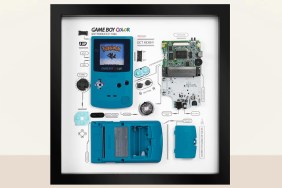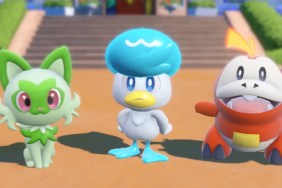I am not a ninja, but I'm learning.
I used to turn to Klei Entertainment for tips on being a Rambo-esque badass. After playing Shank 2, I found myself staring down strangers in a vain attempt at determining whether or not I could "take" them. The mercenaries of Shank's world started to invade my own.
Klei's Mark of the Ninja is a decidedly different beast, notably for the way it slips past the head-to-head combo-focused combat of Klei's catalogue and instead opts for the overhead vent, the shadowy corner, or the "over there behind that shrub". Is it best to pay Mark of the Ninja no notice, or is this a ninja we want stabbing us in the shade of night?
I'm inclined to say the latter, because Ninja, our titular hero, is just as strong, capable, and entertaining as Shank, but he's also smarter. Levels challenge players on a mental level, as opposed to the dexterous button-mashing required by the red bandana'd hero of Klei's past titles.
Instead of stabbing every single person in the world, Ninja is focused, directed, and purposeful. Kills are not always the most advisable move to make and exploration is Ninja's true weapon against the enemies who would stand in his way. While these are all commendable sea changes for a developer who's relied heavily on spectacle, Klei's real achievement is in Mark of the Ninja's execution.
Visual cues persistently inform players of the world around them. The amount of information available on screen at one time can seem mind-boggling from moment to moment, but the tutorial section arms players with a healthy dose of situational awareness.
Mark of the Ninja is about giving you the tools to complete a task and then presenting a wide-open landscape with which to do what you will. If you want to kill every single person in the level, you're more than welcome to. If you want to spill only the necessary blood, that's okay too.

Of course, then you'll be missing out on the beautiful animations and imaginative situational kills. Is a guard waiting right outside the vent you're hiding in? Pull him in and slide your sword vertically through his abdomen for bonus points. Creative, silent, deadly, premeditated—these are the words that describe the most enjoyable way to play Mark of the Ninja.
The game falls apart when you try to fight head-to-head with the deviously intelligent and well-equipped AI. If you can't get behind stealthy, patient gameplay, you will 100% hate Mark of the Ninja. There's no getting around it. Klei wants players to enjoy their game in a certain way, in a certain style. That's not to say that there's only one way to tackle the challenges within, but none of those ways involve running, slashing haphazardly, or being an outright badass like Shank.
Luckily, even if you slip into that pervasive industry-wide mentality, checkpoints will only set you back so far so you can reobserve, realign, and retry. What's more, these spawn points don't ruin the tense, deliberate pace set by Klei Entertainment's level designers.

All of this wonderful gameplay is only improved by the dark, sharp visuals, ominous, forboding soundtrack and entertaining narrative. Ninja has accepted the Mark, a tattoo that will eventually drive him insane. Despite those side effects, Ninja is given improved strength and ability to attack the clan's enemies.
At the end of your blood mission, you'll have to decide between suicide, as instructed, or madness. That dichotomous choice doesn't affect the game in any real way, but it still offers a interesting finale to a game with many more good ideas than bad ones.
With Mark of the Ninja, Klei has proven that they're not a one-trick pony, that they've got ideas to evolve and challenge players with. After more of the same in Shank 2, it's a welcome, fresh look at the developer that's made violence and blood a hallmark of their portfolio. Thankfully, they can still put an interesting spin on all that wetwork.
Code provided by publisher.
-
Deliberate stealth gameplay
-
Kills reward and entertain
-
... without becoming monotonous.
-
Narrative, choice, and mood.
-
One way to play.










